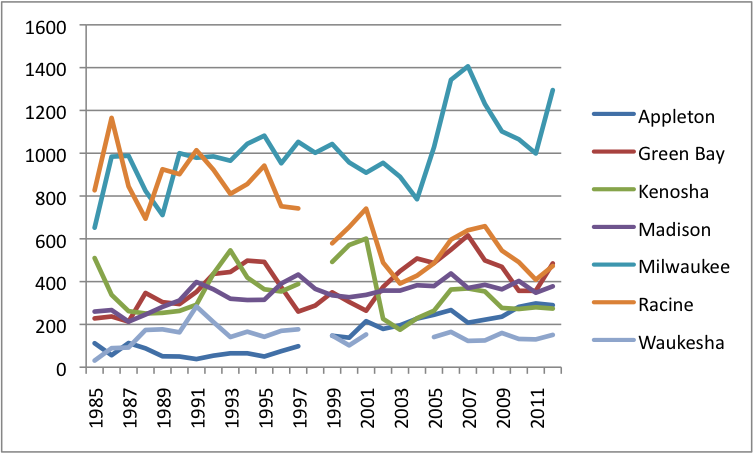Violence in the Heartland, Part V: Wisconsin’s Cities
Since 1985, Wisconsin’s seven largest cities have followed markedly different paths in their rates of reported violent crime. Two, Waukesha and Appleton, have consistently had lower rates than the state as a whole, while two others, Milwaukee and Racine, have typically had rates that are two to three times higher than the state as a whole. Kenosha and Racine have significantly reduced their rates of violence since the 1980s, while the other five cities have experienced sizable net increases.
Here are the overall trends, in the form of reported violent crimes per 100,000 city residents:
In recent years, as you can see, Waukesha has easily had the lowest rates and Milwaukee the highest. Earlier, Appleton used to compete with some success for lowest and Racine for highest.
Here are the net changes in the cities’ crime rates from 1985-1987 to 2010-2012:

